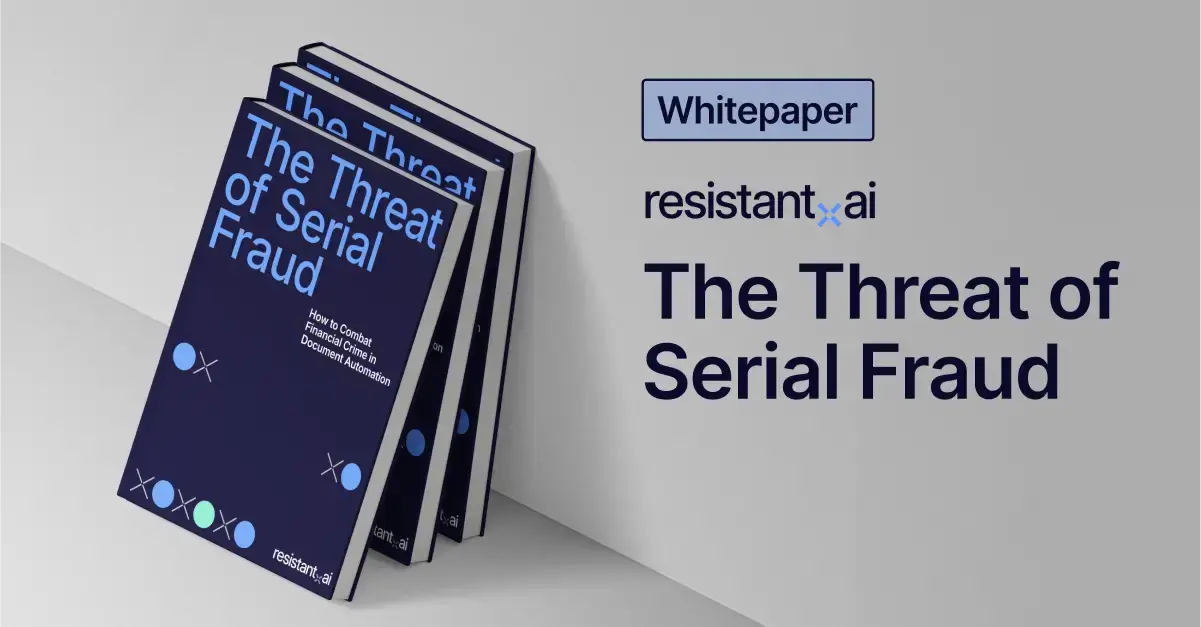The ultimate guide to detecting application fraud in property management


In property management, the only way for high revenue turnover is through the adoption of technology. With the right software, property managers can expect an 800% return on investment.
However, rental income only works if tenants pay on time. By the time renters stop paying, it becomes a liability. Hence, to prevent problematic tenants, the best way forward is to safeguard real estate assets.
This is where tenant screening comes in.
A common method used to screen rental applicants, a tenant reference check helps property managers determine if a renter is a good fit for the property. It is a future-proof way of ensuring that rent is paid on time with little damage to rented assets.
Summary
What is tenant screening?
A tenant screening background check is a process that assesses the financial and rental history of potential renters. The best background check for tenant screening encompasses several aspects: credit and criminal background checks, employment verification, and landlord references.
This is usually a precautionary measure carried out by real estate managers and landlords to safeguard existing assets while determining the reliability of a potential tenant. It is also one of the main deciding factors that help landlords and property managers choose the right renter.
Why tenant screening is on the rise?
Nearly 5 million American households were late on paying rent in 2023, amounting to over $11 billion nationwide.
As the world advances with technology, it’s inevitable that fraud and forgery arises.
One of the most prevalent forms of crime in real estate is tenant application fraud.
From submitting forged documents to lying about their income, renters are becoming creative in getting their dream home by committing tenancy fraud. Such tenants often cause a myriad of problems such as late rent payments, squatting and damaged properties.
This makes renting extremely risky for any real estate managers or landlords in the long run. With physical properties at stake, discerning the right renter for every property becomes key.
Therefore, conducting tenant credit and background checks with the right software becomes a rising necessity for both landlords and property managers to protect their assets.
Why screen rental applicants?
With over 15% of Americans paying rent late, the rental market is fast becoming a risky market for ill-informed property managers and landlords. As a real estate manager, helping homeowners collect rent timely is a main responsibility.
Due to the potential liabilities in property damage, late or absent rent payments, and probable evictions, the legal and financial consequences are aplenty. Without the best tenant screening services in place, it is impossible for real estate firms to thrive and protect their clients’ assets.
Like dating red flags, renters come with their own too.
Hence, one of the best ways to identify tenancy fraud is through tenant screening. By automating the process to screen tenants online, property managers can use data-driven results to make informed and strategic decisions that acts in the best interests of their client.
This also greatly reduces the turnover of tenants while minimizing financial and legal costs associated with keeping the physical asset in tip-top condition.
What to check for tenant screening?
The best tenant background check lies in the details.
Depending on the preferences of the landlord and country’s legislation, each credit and background check slightly varies, from one to the other. In spite of its differences, the core elements of the best tenant background screening services remain the same to detect tenancy fraud.
Here are some of the main aspects of a rental background screening to start out with:
Credit checks
A tenant’s credit check displays a comprehensive overview of the potential renter’s credit score and history. It’s an in-depth look into your tenant’s past, present and future financial status. From the amount of debts owed to rent paid for the past year, every fiscal transaction is in clear view.
As a property manager or landlord, it is your responsibility to keep a lookout for these areas to determine the reliability of the potential tenant.
-
Credit score: Depending on each individual’s location and rental market of the region, leasing out to tenants with a higher credit score eliminates the chances of delinquencies. Low-cost ones usually begin at a credit score of 597. For mid-range rentals, a range of 650 to 739 is typically approved for most applications.
-
Payment history: This is a critical step for real estate managers and landlords. The payment patterns highlight the future of your rental income.
-
Debts owed: If a potential renter has loans, it will show up here. From educational ones to personal car loans, it only becomes a problem if over half of the tenant’s income goes towards debt and rent.
Within the credit check, it is important to decipher if each rent was previously paid on time and if any payments were missing. Red flags such as bankruptcies, high debt installments and regularly missed or late rental payments should indicate that the applicant is not a suitable renter.
Criminal background checks
As much as acquiring monthly rental income is important, renting to the right tenant matters too. To mitigate risks on property damage, neighbor complaints, and safety hazards, the best way to start is for landlords and real estate managers to do their due diligence by screening for criminal history of every potential renter.
The severity of crimes committed can range from being on a sex offender registry to being on the FBI’s most wanted hit-list. Based on each state and country’s legislation, it is crucial to have a clear understanding of the law as not all rental applications can be rejected due to past convictions. Like the fair housing criteria, all standards for selecting the right renter has to be consistently applied across all applicants.
Employment verification
A fool-proof way of knowing if your potential renter is suitable is through their employment history. More commonly known as income verification, it is an excellent indicator of a safe, steady and secure financial status to determine if one is able to afford the monthly rent.
To verify each tenant’s employment status, real estate managers can request proof of income with documents such as bank statements, pay stubs, employment contract, and other forms of financial records that attest to their expected monthly income.
Consequently, property managers should also take note of long gaps in the employment history, missed salaries, and unstable working experience. This can show up in the form of multiple employers over a short period, inconsistent incoming salary dates and differing pay in the stubs.
Rental history
One of the best things about rental history is that landlords and real estate managers can get feedback from fellow homeowners. When screening rental applicants, review their prior history. To go the extra mile, ring up the applicant’s prior place. Speak to another landlord or real estate manager and suss out the details.
Start by asking smart questions about their tenancy such as how consistent rent was paid, their relationship with neighbors and how the previous homeowner felt about each tenant. In addition, pay close attention to their previous landlords, locations, and period rented. This can go a long way in minimizing the possibility of accepting risky renters.
Eviction history
Not all tenancy verification services include an eviction history. Therefore, it is important for landlords and property managers to carry out one separately or engage a professional to get the job done. In addition, online court records are privy to the public where any real estate manager or homeowner is allowed to access for a free eviction check.
Like all court documents, if there was a prior eviction, this information would be easily available:
- Plaintiff name
- Defendant information (tenant’s name)
- Judgment details include case number, file date, and the documented results
It is critical to pay close attention to the result as it highlights why the potential tenant was evicted. These applicants with prior eviction notices are considered to be high-risk liabilities and not a good fit for any property owners.
However, even if real estate companies and landlords include all of these elements in a background credit check for renters, it is still not enough. To fully fool-proof the property, engaging a professional service to detect tenancy document fraud is vital.
What is tenancy fraud?
Tenancy fraud occurs when a tenant gains access to living on a property without legal means. From using falsified documents to renting property out to unauthorized personnel, tenancy fraud is a broad term used to highlight a range of criminal activities a renter has committed.
The different types of tenancy fraud include:
- Unlawful subletting
- Tenant application fraud
- False right to purchase fraud
- Wrongfully claimed succession
- Key selling
- Abandonment
With the multitude of ways for renters to get their dream home unlawfully, it is crucial that property managers and landlords do their due diligence to prevent unforeseen costs.
Why is tenant fraud on the rise?
While people struggle in difficult economic situations, tenancy fraud is bound to escalate.
Since COVID, the cost of living has been rapidly spiraling out of control. In the UK, tenancy fraud has increased by 120% between 2022 and 2023 alone. Due to the economic changes across the globe, energy bills and inflation have drastically increased with no signs of stopping. This led to a global recession and higher mortgage rates as the whirlwind of economic uncertainty continued, ultimately driving up rent costs indefinitely.
Here are some key reasons for its sharp increase:
High demand vs lack of available properties
Particularly in bigger cities like London and Prague, the number of available assets are limited. With the striking imbalance between the demand and vacant properties, potential renters tend to commit tenancy application fraud by falsifying documents to indicate a higher income in order to be chosen after a tenant screening process.
Economic downturn
The current industry is no longer a renter’s market. Instead, it is the landlord and real estate manager who holds the power as their options for tenants rise. From financial hardships to job losses for renters, it is becoming increasingly difficult to rent one’s dream home. This leads potential tenants to resort to fraud in order to stand a fighting chance among a sea of applicants.
Lesser eviction power and penalties
In some countries and states, tenants are well-protected by the law with strong restrictions on eviction that encourages the exploitation of this legal architecture. Without legal ramifications and knowing that landlords or real estate managers have little power over their assets, some renters would be happy to sublet or invite unauthorized personnel to live in the rented property. In addition, there are no immediate penalties apart from a lost deposit which is a plus for people to commit tenancy fraud with little consequences.
How can you improve your background check process?
Across the various forms of tenancy fraud, most of them can be simply eliminated by performing due diligence. Landlords and property managers can prevent high-risk renters by undergoing a comprehensive tenant screening background and credit check.
This is a proactive move, as it significantly minimizes the most typical type of renter fraud: tenancy application fraud.
In initial applications, potential tenants tend to commit fraud by submitting falsified documents, fabricating non-existent histories or even stealing identities to pass off as another.
These are some of the most common types of documents for tenancy application fraud:
Identity fraud
Identity fraud is the unlawful use of someone else’s personal data to gain access or obtain products and services. More typically known as a personal theft of personal information, potential renters tend to act under the pretense of another person to secure leases. These documents could be stolen or wrongfully retrieved by the potential tenant leading to fraudulent activities.
This can happen during a tenant check process where false documents such as bank accounts, credit cards, and even official documents including passports and driving licenses are submitted. Moreoften, landlords and property managers may not always recognize these minute delinquencies at first look.
This is why using an advanced software to detect tenancy fraud or hiring top rated tenant screening services is a wise choice for real estate managers.
Income falsification
To get ahead in the game, tenant applicants have to prove their financial worth. Unfortunately, in today’s competitive real estate market, not every paycheck makes the cut. With one in seven potential renters lying about their income, detecting fraudulent tenants is becoming a challenging step in the tenant screening process.
From falsifying income statements (pay stubs and slips) to altering personal data on the documents, there are a myriad of ways to boost one’s actual income. By using a simple software, such as Apple Pages or even a Google search, for an existing template, generating a false income under the pretense to get a rental lease is no longer a hassle. Hence, the use of an AI fraud detector for document forgery detection enables income fraud verification for tenant screening.
Rental history fabrication
Contrary to popular belief, people do fabricate their rental history to give a great first impression. Instead of putting in previously rented places, potential renters tend to paint a completely inaccurate picture by engaging friends, family or even prior colleagues or superiors as personal references. This causes real estate managers and landlords to have a false impression of the potential renter. Not necessarily the most crucial step in a tenant credit check and background check, it is still an important one as lying in the initial stages before securing a lease is a huge red flag.
Consequences of tenant fraud
Getting a tenant is easy—the hard part is getting them out.
However, many do not realize the danger of skipping out on a credit and background check for renters.
Once a property is rented to a fraudulent renter, it is inevitable that a plethora of financial, legal and business problems would be incurred for both property management firms and landlords.
Here are some of the main consequences of tenant fraud for property managers and landlords:
-
Property damage: Destruction of property accounted for over 97% of homeowners’ insurance claims alone in 2020. This can include vandalism or damage to the property internally (such as the flooring, walls) or externally in areas including the driveway, garden and garage.
-
Hefty evictions: In the last month alone, over 82,000 evictions were recorded in the United States. With set laws protecting renters in many countries, most evictions entail a slew of legal battles and financial losses that takes an extended period of time with little progress.
-
Financial loss: The only way for landlords and real estate managers to make profit is through rental income. Unfortunately, that is highly dependent on the tenants. Based on prior research, 40.6% of renters suddenly stopped paying rent without further notice. This leads to a probable eviction with legal issues if the situation persists with no results.
-
Poor mental health: A staggering 88.3% of landlords highlighted some sort of stress in the process of renting out their properties. Not lagging far behind, 53% of real estate managers struggle with their mental health when it comes to managing rented properties. Directly correlational, it amplifies the effect of how fraudulent tenants cause mental distress.
-
Tarnished reputation or image: Unlike landlords, property managers are the face of their companies. Once they fail to retrieve rental income, it sets the wheel in motion for homeowners to leave. This leads to real estate companies losing credibility with their clients as their reputation takes a hit from poorly managed properties.
As a result, the easiest way to prevent these financial, mental and legal challenges is through the use of top rated tenant screening and background check. This ensures that both landlords and property managers make data-driven decisions that create a fulfilling rental experience for both parties.
How to identify fraud in rental applications?
With over $3.3 billion lost in frauds among consumers in crimes such as identity thefts, the main aim of tenancy fraud is to fool real estate agencies and landlords. From deed forgery to title transfer frauds, the list is endless when fraudsters are relentless. Hence, it is vital for property managers and landlords to exercise prevention instead of cure.
More commonly known as document fraud, potential renters tend to use one or several documents to commit the crime. In this list, find out more about the types of documents used in tenant fraud to safeguard your real estate properties ahead of time.
-
Bank statements: In most cases, tenant applicants are capable of taking it further by using fake bank statements while hijacking an entire document to play the game. With Photoshop, PDFs, and other software, editing main personal details like salary figures and transaction histories is widespread in tenancy fraud.
-
Pay stubs: For payment slips, forgery is how the fraudsters get things done. The easiest way to detect fake pay stubs is through verification. By comparing it with bank statements and tax documents, one can see the discrepancies such as the payment amount, company logo, and inconsistencies in the computations. This would indicate a fake pay stub; however, it is still not enough evidence to prove that the document is fraudulent.
-
Tax forms: Like payment stubs, tax forms can be doctored the exact same way. With minor edits to the document, a potential tenant can secure a lease easily once the fraudulent tax return passes through an inexperienced eye.
-
Transaction histories: By doctoring a number on the document, loans and other bills can decrease significantly, causing the potential tenant to have a higher net income. This is again a form of tenancy fraud leading real estate managers or landlords to believe their capacity to pay is higher than usual.
-
ID documentation: Forging, doctoring, or stealing identities is a whole new ball game. When tenants apply for new properties, they can dupe property managers and landlords by submitting a completely different document that represents someone entirely different than who they really are.
By knowing the documents involved in tenant application fraud, real estate managers and landlords can learn how to spot fake documents and detect document editing to break the barrier down into identifying genuine renters.
Detecting application fraud in property management
Unfortunately, the more mandatory a process is, the more frequently fraudulent the documents submitted can be. When it comes to tenancy application fraud, there are a plethora of ways to cheat and secure a lease with forgery, doctored documents, and identity theft. For real estate agencies, this spells trouble.
Unlike a landlord background check, property managers need to be prudent in managing the risks in document fraud.
This includes going the extra mile to have an extensive tenant background report after conducting a rental history check and a tenant background search.
Here are some ways one can identify fraudulent documents with the naked eye:
-
Workplace violence: Not easily noticed, poorly forged or doctored bank statements tend to have discrepancies in the bank logos, overall layout, and small details such as the names, imbalanced amounts, and timestamps that do not add up.
-
Pay stubs: Unlike bank statements, payslips with discrepancies do not immediately indicate fraud. On the contrary, it is much more difficult to detect fake stubs. The best way is through utilizing fraud detection software that identifies the pay stub’s originator (which should be a bookkeeping program) and additional alterations done on the file.
-
Poor performance: Like bank statements, inconsistencies or discrepancies with certain fields and non-standard fonts are a dead giveaway for fake documents. In fact, fraudsters go a long way in ensuring their lies stay intact, such as creating a tax return but not filing it.
-
ID documents: For identity fraud, passports, driving licenses, and identification cards could be entirely fraudulent—either because they belong to someone else or the documentation is not genuine. Alternatively, fake ID cards, driver’s licenses, and passports can have images doctored as well as photos and names altered. These modifications usually indicate image attributes and additional or lesser words that do not match in different parts of the card.
In addition, since most documents are shared digitally, and everyone has easy access to editing tools — either pre-installed on regular consumer computers or available online — most document fraud is undetectable by the naked eye. In fact, there are whole websites just a Google search away dedicated to providing people with professional grade forgeries on demand.
In other words, relying on manual help to detect tenancy fraud is no longer feasible, and it’s vital to leverage document fraud detection solutions to stop tenant fraud. In addition, for the best confidence, make sure to request PDF originals of the documents submitted, as those are the ones that can be subjected to most thorough forensic analysis. In addition, 98% of document fraud checks can be easily automated by using AI to detect renter application fraud.
How to prevent tenancy fraud in property management?
As a property manager or landlord, the key to making money while safeguarding the property is to have prevention measures in place. In this case, setting up parameters to prevent fraudulent tenants is the first and most crucial step in the entire rental life cycle. From carrying out tenancy audits to verifying the identity of the potential renter, the number of methods is endless.
However, one of the best ways to combine the best of both worlds is through technology and tenants. This involves sharing data with professionals such as background screening services, housing providers, and even credit authorities.
Here are the top three methods to effectively prevent tenancy fraud:
Outsource
One of the best ways to enhance the tenant application process is to leave it to professionals. By hiring top rated tenant screening and fraud detection services, fraud is kept to a minimum with expert recommendations, analysis, and preventative measures. When leaning on professionals’ expertise, the tenant application process becomes much more convenient and effective. A vital tip to hiring the best tenant screening company is to ensure that robust technology is incorporated throughout the process. Simply recruiting a fraud officer who uses the naked eye to do the work is just not enough given the extent of the art of deception rapidly proliferating in many forms of documents.
Set precedence
For property firms and landlords, the best form of deterrence is through penalties and policies. Tenant fraud can be detrimental for existing communities since it attracts crimes and a slew of other societal issues. As a real estate firm, publicizing a zero tolerance approach among housing providers and tenants could change the scene significantly. In addition, property managers could add in specific clauses in contracts that enforce penalties and punishments for potential renters attempting to dupe the company.
Utilize AI
A company only makes money if it stays updated with the technological trends of society. From aerospace to real estate, the concept remains the same: When it comes to incorporating technology to detect tenancy fraud, automating the process is the way to go. AI is more than convenient—it’s also an incredibly effective method to eradicate fraudulent renters. By leveraging AI-driven software or firms, real estate agents and landlords can detect 36% more fraud than any other method.
What is the best background check service?
Sometimes, hiring a professional requires prior research. In the world of background screening, it is critical to engage the best tenant screening service that acts in your best interests. With thousands of services across the world, the main traits to prevent tenant application fraud remains the same. Hence, to properly screen tenants, property managers and landlords should only work with firms that provide the following:
Accurate and quality data
Screening services help decision-makers like landlords and real estate managers understand their potential tenants. For the right decisions, each tenant's background report should be accurate down to every single detail. This ensures that there is no misinformation or undetected fraudulent activities.
Customer service
Like any other business, customer service makes a difference. For landlords and property managers, working with a responsive firm is a must. By providing stellar service, renting a property becomes more straightforward as all tenant related questions can be directed to an organization that offers tailored solutions.
Experience
Due to the sensitive nature of the documents, recruiting a reliable yet experienced service is important for both real estate agents and landlords to thrive. This ensures data privacy with utmost confidentiality that benefits both parties. As a real estate firm, this is a strategic move to maintain its credibility while enhancing its reputation with a professional that specializes in defrauding activities.
Tech-savvy practices
Gone are the days of using the naked eye to detect fraud. With the advancements in technology, it is essential to engage a firm that uses the latest technologies to identify metadata or digital footprints from fraudulent revisions. For tenancy fraud, using a specialized software to detect document fraud helps to automate the process more conveniently for a peace of mind.
Quick turnaround time
Time is of the essence in real estate. To properly evaluate potential tenants, hiring a professional service that can provide a comprehensive report in a timely manner without compromising on quality is key. This helps to keep potentially good renters while keeping the fraudulent ones out.
Depending on the property firm and landlord’s requirements, different tenant screening services appeal to disparate demographics. But the concept in hiring one remains the same: to make things easy for property managers and homeowners.
How can property managers improve the screening process?
One of the biggest mistakes that property managers can make is conducting every single process in-house. In a bid to save costs, it can end up costing a lot more when tenants become squatters or fraudulent renters. In addition, in-house work usually means low cost but without the infrastructure or technology to move forward.
Hence, the easiest way to move ahead is through jumping on the AI bandwagon with third-party vendors, who have the right tools. Instead of manually checking each document, engaging a firm can greatly enhance the speed of your tenant application process without compromising on quality.
The best part? Any property management firm will gain a competitive edge by moving with the advancements of technology through utilizing a robust tenant fraud detection solution. With almost 80% of documentation scanned for fraud or authenticity automatically by over 500 detectors, real estate decisions can be made in a jiffy without repercussions.
How to prevent tenant fraud with Resistant AI?
Everyone makes mistakes. Due to today’s rapidly evolving technology, even an authentic looking document can be fake, through and through. For real estate companies and landlords, eliminating tenant application fraud with AI is a game changer.
Here are some of the main benefits of combating tenant fraud:
Save Time
When it comes to business, time is money. For property firms and landlords, saving time comes in many forms. With multiple processes in the tenant application lifecycle, it can be tricky to run things smoothly within a reasonable timeline—without technology, it can take 30 minutes and three days per applicant. However, by using AI, it can take as low as three minutes to screen a renter. This frees up additional time for real estate managers and landlords to be more productive while making faster decisions.
Eliminate human error
People make mistakes, which can lead to exorbitant expenses. For real estate agencies, this is simply unfeasible as a business. Through AI-powered document fraud detection software, it will significantly alleviate this issue by detecting up to 36% more tenancy fraud automatically without compromising on quality and risks such as human error. Because the process is automated, any personal biases are eradicated from the process, leaving behind data-driven results.
Gain a competitive advantage
Imagine being fast, error-free, and trustworthy in a vast sea of real estate companies and homeowners. This is how AI revolutionizes the tenant application process. By scanning over 80% of the documents instantly, document fraud detection software helps property agencies stand out among competition with almost little to no effort. In return, these companies remain relevant and updated with the industry’s technology to provide the best returns to homeowners with high profit turnovers.
Free advertising
When AI does the job in eradicating fraudulent renters, it is inevitable that the property managers get all the credit. This could easily build a community of satisfied homeowners using word of mouth to promote the property companies’ services. Known as a ripple effect, the company gains positive traction for being reliable leading to additional profit and repeat businesses. Simultaneously, this also enhances the real estate company’s image as a reputable and effective leader in the market.
Minimized liabilities
As a property owner or manager, minimizing potential risks is key. From a damage-free asset to a positive rental relationship with renters, the tenant application process plays a major role in eliminating risks. By using AI to weed out fraudsters, real estate managers and landlords can greatly alleviate the possibilities of squatters, late rent payments, and evictions. This leads to minimal damages and expenditure with the possibility of a healthy renter relationship. In addition, knowing liabilities are kept to a minimum gives both homeowners and property managers a peace of mind.
With a plethora of benefits, hiring a professional screening service to protect one’s real estate property should be a priority in today’s society. Highly beneficial for property managers on all fronts, automation is the next step for businesses to flourish.
Property management automation and fraud detection
As the economic downturns persist, the number of suitable tenants is bound to decrease. That’s when desperate measures from fraudulent renters start creeping in on unsuspecting property managers or landlords.
Tenant screening can be a daunting process when done independently by homeowners or even property managers.
Hence, to generate consistent rental income, preventative measures should be put in place ahead of time. By engaging AI-powered tenant screening services, regular rental income is no longer a dream, but a reality. With AI automating tenant screening for property management firms, fraud detection is both a breeze and a profit booster.








